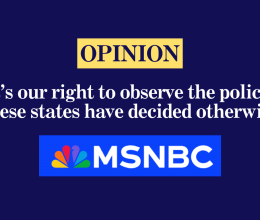NEW ORLEANS – On Monday, August 6th the Fifth Circuit Court of Appeals will hear arguments in a case challenging Louisiana’s chronic failure to provide poor and low-income defendants with access to timely representation.
In 2016 the ACLU Criminal Law Reform Project and the ACLU of Louisiana filed a class action lawsuit on behalf of criminal defendants in Orleans Parish who were unable to afford an attorney and forced to wait indefinitely for a public defender due to budget shortages.
“Thanks to Louisiana’s broken public defense system, the presumption of innocence essentially does not apply to thousands of individuals, simply because they lack the means to secure private counsel,” said ACLU senior staff attorney Brandon Buskey. “The state’s refusal to live up to its constitutional obligation to provide counsel explains in part why Louisiana has the second highest per capita incarceration rate in the world. If Louisiana supposedly can’t afford to defend those accused of crimes, the constitution does not allow it to prosecute them.”
“Louisianans placed on a waiting list for counsel are unconstitutionally denied meaningful access to the justice system, which in turn forces many to languish indefinitely in jail without any means to challenge their arrest, their detention, or the accusations against them,” said ACLU of Louisiana staff attorney Bruce Hamilton. “This injustice puts the most vulnerable members of our society at risk of illegal detention and wrongful conviction, needlessly separates people from their families, and clogs an already overwhelmed judicial system.”
The lawsuit asserts that that by indefinitely placing people on a waiting list for appointed counsel, Louisiana has failed its responsibility to provide people charged with crimes – all of whom are innocent until proven guilty – with zealous representation as required by the Sixth and Fourteenth Amendments.
The suit was dismissed by a trial court and is now being appealed. The ACLU seeks a judgment from the court declaring that all defendants are guaranteed their Sixth and Fourteenth Amendment rights to due process, equal protection, and competent representation.






